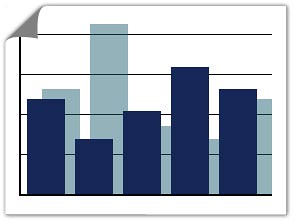The Sierra Club thinks Metro is dropping the ball in making the phone number for the Metro Transit Police inaccessible. Below is the full text of a letter they sent to interim GM Sarles.
July 13, 2010
Richard Sarles, General Manager
Washington Metropolitan Area Transit Authority
600 5th Street NW
Washington, DC 20001
Dear Mr. Sarles:
Sierra Club is strongly committed to strengthening the Metro system and transit in general, and to promoting transit ridership. We recognize the importance of safety, and of public confidence in the safety of our transit system. Year after year, we have consistently advocated for increased local and federal funding of Metro, to help ensure that it has the funds necessary to operate effectively, efficiently and safely.
One simple, but important step we believe Metro needs to take is to make the public aware of how to contact the Metro Transit Police Department. It is our understanding that, currently, no visual or audible information on how to contact the Metro Transit Police Department exists on any bus. A cryptic announcement encourages riders to “contact the appropriate authorities.” There is no, or next to no signage in any rail station or on any train. There are no announcements on any train. Public announcements providing the phone number, 202-962-2121, are heard in rail stations.
The following recent events serve to illustrate the need for Metro to better inform the public:
- Cheverly Metrorail station staff locked up the station prematurely on Tuesday, June 29, resulting in two riders being locked inside. This incident followed a similar one on September 25, 2009.
- An elevator at the Cleveland Park Metrorail station carrying one adult and four children on Monday, July 12, 2010 got stuck for 40 minutes.
- An individual not employed by or affiliated in any way with Metro allegedly drove a Metrobus on July 9, 2010, ending when he crashed into a tree and several cars.
On December 13, 2006, the Metro Riders' Advisory Council Bus Subcommittee and Rail Subcommittee each voted to urge Metro to produce visible signs and audible announcements on buses and trains and in rail stations informing the public of the phone number to contact for police matters. At that meeting, Metro Transit Police Department Lt. Brian Heanue indicated that the vast majority of reports received by the police department come from Metro staff to whom the public submits information, rather than from the public directly. Lt. Heanue also indicated that the Department would welcome receiving more reports directly from the public.
Metro staff did prepare a mock-up for a sign to be installed in four places on each rail car. That mock-up follows this letter.
No signs were ever installed. One possible reason for Metro's inaction is the ongoing debate over how many phone numbers Metro should provide for the public to contact the agency. But the Metro Transit Police Department, fortunately, has affirmed the value it places on hearing from the public directly. This is not the kind of phone number about which there is justification to withhold.
In 2005, Sierra Club led its 10-Step Campaign for Metro Accountability, the cornerstone of which was the establishment of the Riders' Advisory Council (RAC). Now, almost four years after the RAC's relevant subcommittees approved resolutions urging Metro to take actions that we are confident would make the system safer, we hope that Metro will put an end to keeping the public in the dark about how to contact the Metro Transit Police Department.
Increasing public awareness of the phone number surely will increase awareness of the Department itself, and likely will help strengthen public confidence in the safety of riding Metro.
Sincerely,
Dennis Jaffe
Regional Transportation Advocate










 Oct. 11, 2012
Oct. 11, 2012 February 21, 2012
February 21, 2012 March 4, 2010
March 4, 2010




